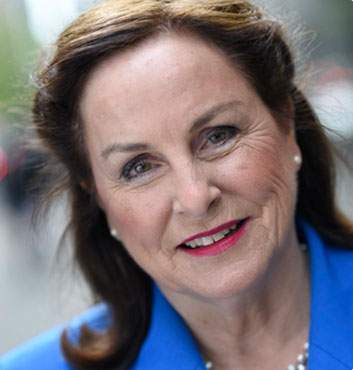Loss Can Also Bring Peace
In Elisabeth Kübler-Ross’s book On Death and Dying (Scribner, 1969), Dr. K-R states that the process of grief always includes some qualities of anger. Dr. Joseph Shrand and I illustrated those points in our last post.
Comments Dr. Kübler-Ross in On Death and Dying, “since none of us likes to admit anger at a deceased person, these emotions are often disguised or repressed and prolong the period of grief or show up in other ways.” The author uses the example of a child, the child in us. A five year-old child who loses a parent is both blaming herself for that parent’s disappearance and being angry at her for having abandoned her and no longer satisfying her needs.”
Grieving parents who have buried their children know the loss and I think feel like the five-year-old child. Time has passed since July 2016 when our son James overdosed. The feelings of loss may temporarily abate, but then they resurface. Case in point: I’m in the bathtub on Christmas Eve and am listening in the next room to Elvis singing “It’s going to be a Blue, Blue Christmas without You.” I start bawling. Holidays and our son’s birthday are particularly emotional.
Those feelings resonate with the parent of a child who had built a lifetime of expectations and dreams for that child, only to have them dashed by a premature death. You think about what could have been: a career, a marriage, and most of all, a future in sustained recovery from drugs and alcohol.
When your child is using and has a substance abuse disorder, you feel as if you have already lost that child. But you may have an ounce of hope that he will recover… that somebody will say something to him that will make him want to change his habits, that he will find a job that will spark his interest that will lead to a career, and that this new vocation will supplant a life driven by the cravings for drugs.
While your drug-addled child may be at peace now and not in the grips of addiction, you realize that as a parent you can never return back to some special moment that was shared with your child, except in memories: the laughter we shared at the inane television ads, playing tennis at 10 p.m. at a Montana dude ranch, making Shrimp Scampi together.
Parents can get desperate occasionally at the thought of not seeing their children again. From time to time, I pull out saved Mother’s Day cards, with sweet messages signed with a sober hand by our son. I reread condolence messages extolling his virtues after he died. Yet, the connection wasn’t enough for me. Two months later, I found myself calling his old cell phone number.
Naively, I thought I would get his recording and I could at least hear his voice. However, someone answered his phone (unusual as he lived alone) “Hello, Hello!” I was so freaked out that I quickly hung up.
I often wonder if James’s life would have eventually been drug-free. I think he always looked at adoption as a liability that arrested his development. He was the child who blamed himself for his biological parent’s disappearance and was angry at her for having abandoned him and no longer satisfying his needs.
His adopted sister also feels loss, but a different kind. With overdosing, you don’t get to say goodbye. This is particularly difficult when you and your brother didn’t get along for two years and didn’t mend your ways, when you feel short sighted because your brother is getting more attention due to his issues.
Although a child’s death leaves a legacy of “what ifs,” “should haves,” “could haves,” I find some gain in loss. It is said that husbands and wives often separate after the death of a child. Are they blaming one another for the consequences? “Didn’t you see..?” Is it the depression following the loss?
I found the opposite to be true: that the loss has brought us closer together. We don’t quarrel about the outlay of money for rehabilitative services, the “on edge” remarks that were so present in a home that was being invaded by late-night calls, pleas for money, and constant worries. We are more sensitive to each other’s feelings, mirroring each other’s sadness. It is peaceful at last although we have paid a price!
If you able to talk to a friend whose child has died under somewhat similar circumstances, it brings clarity to the heartbreak. Only they can truly understand your loss. It has been my experience that friends don’t want to bring up the subject of addiction or death the way they might if our son had cancer. It’s stigma, it’s awkward, and to them, unpleasant.
Kübler-Ross’s On Death and Dying devised a five-stage model of grief that originally described the experience of patients diagnosed with a terminal illness. Later in life, she clarified her model in Grief and Grieving (Simon and Schuster, 2005) stating that there is “not a typical response to loss as there is no typical loss. Our grieving is as individual as our lives.”

Wesley Cullen Davidson
Wesley Cullen Davidson is an award-winning freelance writer and journalist specializing in parenting. Currently, she is targeting her writing about recovery to parents whose children have substance abuse disorders.
Heartfelt, honest, and devastating.
You are my best friend, and I admire your strength, dignity and peacefulness…..love you and pray each and every night for your beloved son, whom we all loved. Hold close to S & L and to friends who surround you with love….